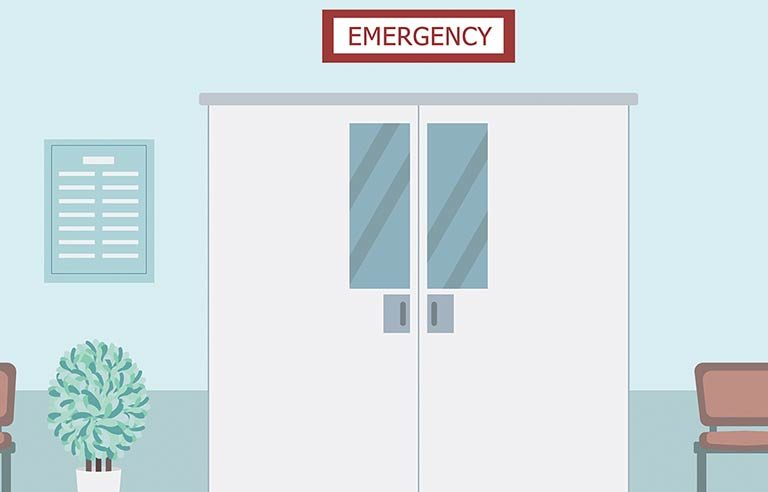Don’t avoid emergency care
Worried about COVID-19? Experts say ER staff know how to keep you safe

Is it safe to go to the emergency room during the COVID-19 pandemic?
It appears many people are hesitant to seek emergency medical care out of fear of contracting the coronavirus. Statistics show that, over a four-week period during the early days of the pandemic, the number of ER visits was 42% lower than during the same period in 2019.
So, are those concerns valid?
Fear not, says Justin Coomes, emergency department medical director at Mercy Health – Fairfield Hospital in Fairfield, OH, and a spokesperson for the American College of Emergency Physicians.
“In a lot of ways, coming to the emergency department is oftentimes safer than going to a restaurant or getting on a plane right now because we’re so hyperaware of COVID-19,” Coomes said. “If there’s one thing we’ve gotten really good at, it’s honing in on changing our process to fit the new reality of the pandemic.”
It’s another reality that has health care professionals like Ron Kraus, an ER nurse in Indianapolis and president of the Emergency Nurses Association, equally concerned.
“‘Where are the heart attacks? Where are the strokes?’” he said he and his colleagues were asking themselves as the pandemic went on. “People were delaying getting care, and that’s concerning.”
Does this include you or a loved one? If so, Kraus has a bit of advice: “What you went to the emergency department for pre-COVID, you should be going to the emergency department for during COVID. The longer you delay, the worse the outcome could possibly be.”
That’s especially true for the following health emergencies:
Heart attack
Experiencing shortness of breath; pressure or pain in your chest; lightheadedness; and/or pain in your arm, shoulder or neck? These are common symptoms of a heart attack, but they’re often dismissed by people experiencing them.
“Don’t discount your symptoms because you’ve always been healthy or you’ve never had something like this before,” Coomes said. “All emergency physicians can tell you they’ve had plenty of patients who don’t fit the typical picture and ended up having something very serious.”
Pain, Kraus added, is your body’s way of telling you that part of your heart has a blockage and is lacking oxygen.
“The longer you leave it blocked, the more tissue that dies and your heart, over a long period of time, becomes less effective and not as strong,” he said. “Intervening early, we can do a lot of amazing things and get you back on the course you need to be on.”
Post a comment to this article
Safety+Health welcomes comments that promote respectful dialogue. Please stay on topic. Comments that contain personal attacks, profanity or abusive language – or those aggressively promoting products or services – will be removed. We reserve the right to determine which comments violate our comment policy. (Anonymous comments are welcome; merely skip the “name” field in the comment box. An email address is required but will not be included with your comment.)
